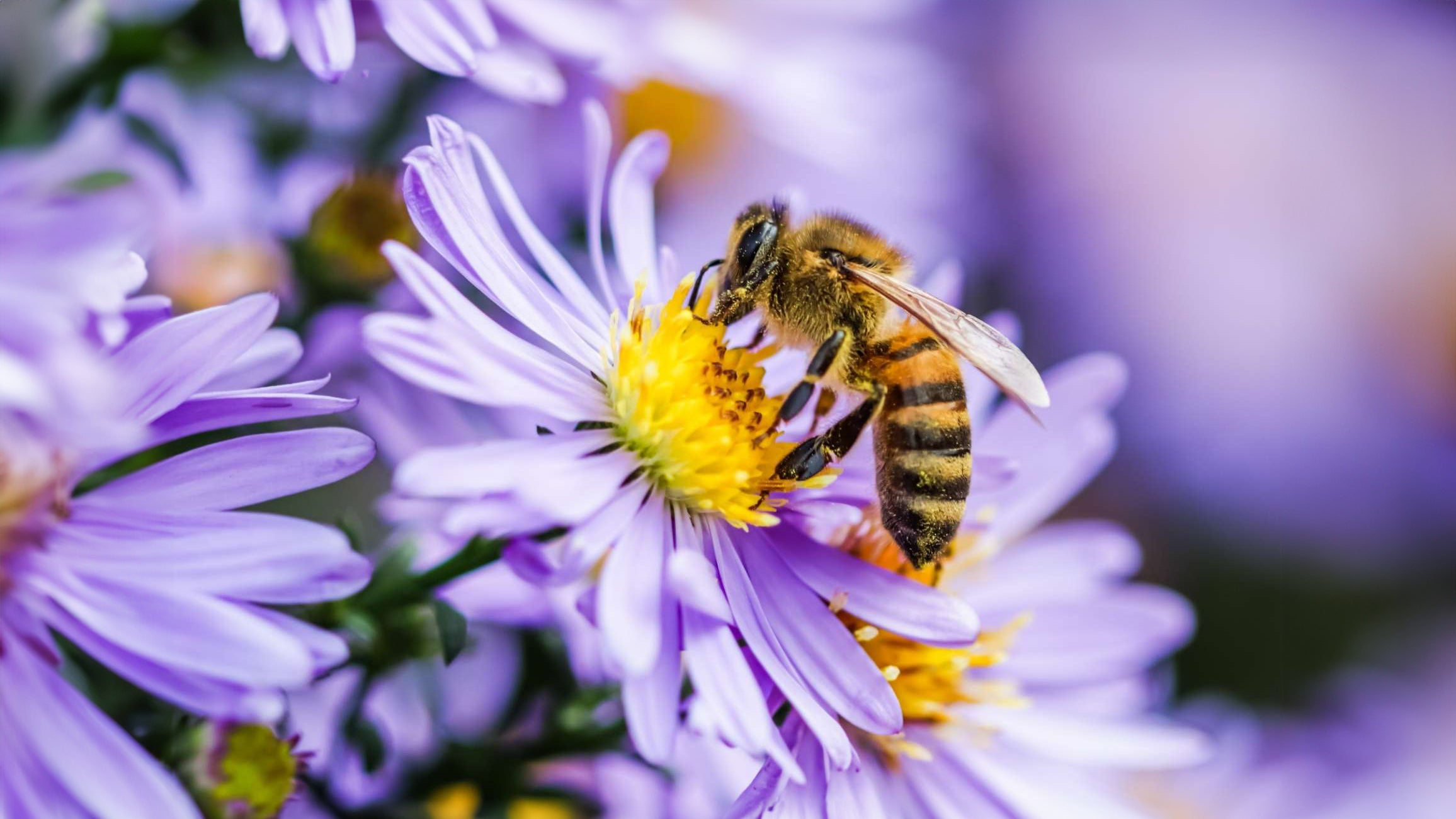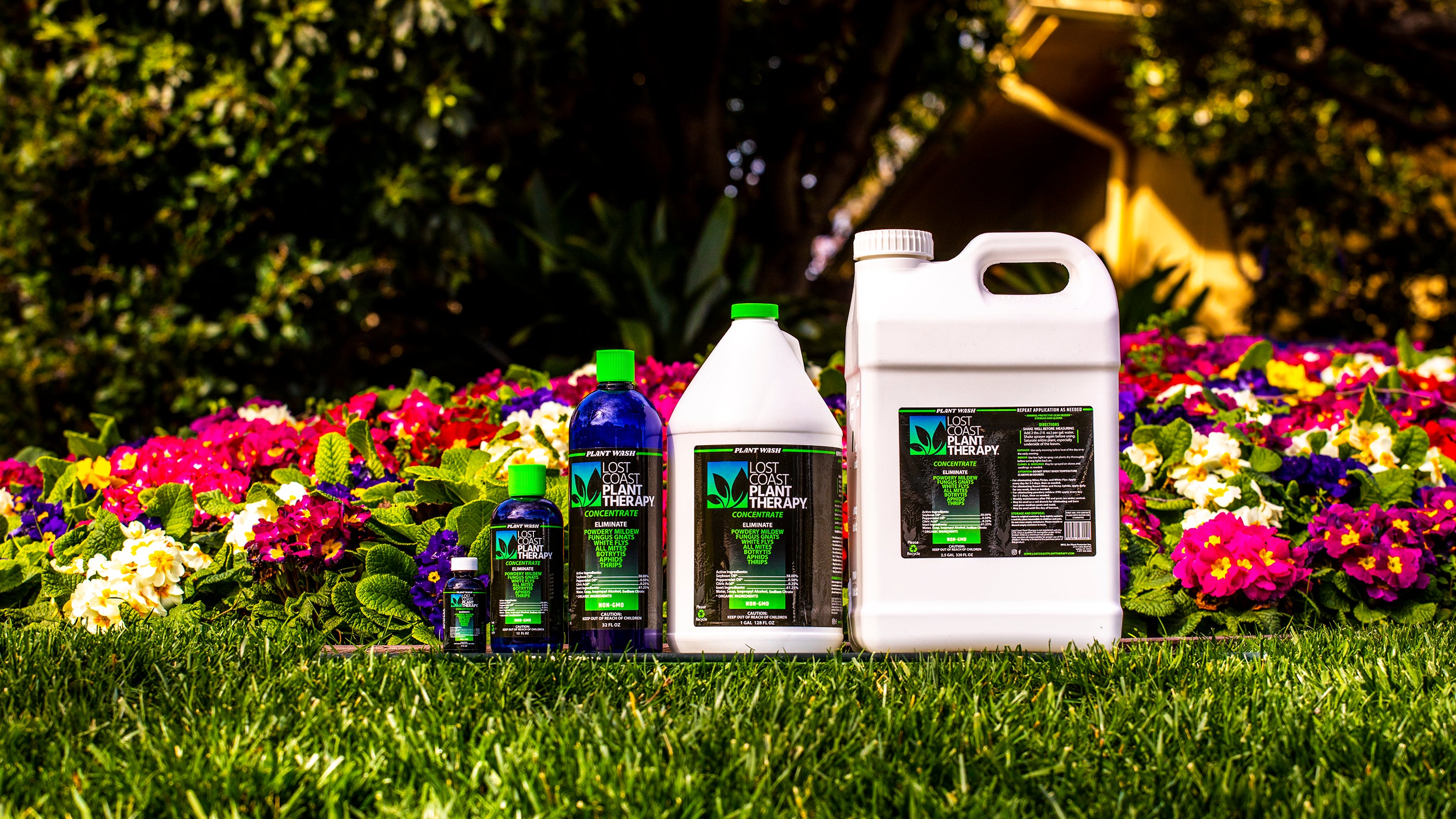Whether we’re tending backyard beds or managing acres of crops, bees are right there beside us. Protecting these essential pollinators has been part of our mission from day one.
It’s why we chose natural, plant-based ingredients, and why our product was created to support healthy ecosystems instead of harming them.

Why Lost Coast Plant Therapy is Safe for Bees
Because our formula is a minimum risk pesticide made with natural and organic ingredients, and because it works only on contact with soft-bodied insects, it does not impact hard-bodied beneficials like bees, ladybugs, or praying mantises.
When bees land on a plant that’s been treated and dried, they simply go about their work, gathering pollen, visiting flowers, and supporting your garden.
Why Bees Matter
Bees help feed the world. They pollinate the fruits, vegetables, herbs, nuts, seeds, and wild plants that we rely on every single day. Without them, our gardens would be sparse, our grocery stores emptier, and our ecosystems far less resilient. It’s no wonder bees are often called one of the most important living species on Earth.
90%
Of wild flowering plants depend on animal pollination
75%
Of the world’s leading food crops depend on pollinators to some degree.
33%
1 in 3 bites of food we eat relies on pollination
20,000+
bee species exist, most of them don’t make honey

What’s Endangering Bees Today
Habitat loss. Urban development, monocropping, and land clearing leave fewer wildflowers and nesting spaces.
Pesticide exposure. Many traditional pesticides work by poison, creating harmful residues that cling to plants, drift in the air, and disrupt pollinator health.
Parasites and disease. Varroa mites and other pests weaken colonies and spread quickly.
Climate stress. Changes in seasonal patterns confuse bees’ natural rhythms and affect when flowers bloom.
Easy Ways You Can Support Bees
Supporting bees doesn’t require a farm, a huge backyard, or years of gardening experience.

Plant Wildflowers
Plant Wildflowers
Providing more food for bees is one of the easiest ways to support them. Even a small patch of native wildflowers can make a big difference. A mix of bee-friendly annuals and perennials will keep nectar and pollen available through the seasons.

Grow Heirloom Varieties
Grow Heirloom Varieties
Heirloom vegetables, herbs, and flowers often produce richer pollen and fuller nectar than modern hybrids, offering bees the kind of nutrition they naturally evolved alongside. They also help maintain genetic diversity in our gardens, which benefits pollinators and plants alike.

Avoid Harmful Pesticides
Avoid Harmful Pesticides
Choose natural options like Lost Coast Plant Therapy, which controls soft bodied insects without harming bees, ladybugs and praying mantis, and supports a thriving ecosystem.

Always Have Something Blooming
Always Have Something Blooming
Bees thrive when there’s a steady supply of blossoms. By planting a mix of early spring bloomers, summer favorites, and fall flowers, you ensure there’s always a meal waiting, especially during ti`mes of the year when food can be scarce.

Support Local Beekeepers
Support Local Beekeepers
Buying local honey and hive products not only tastes wonderful, it directly strengthens your community’s pollination network. Local beekeepers play a huge role in maintaining healthy, thriving colonies.

Get involved locally
Get involved locally
Join your local bee or pollinator association. These groups offer guidance, seasonal classes, volunteer opportunities, and community education, all wonderful ways to learn more and support the people working to protect pollinators.

Create Bee-Friendly Spaces
Create Bee-Friendly Spaces
Bees also need water, especially in hot weather. A shallow dish filled with stones or marbles gives them a landing spot so they can sip water without falling in. Leaving a few undisturbed corners of your garden also provides natural shelter for native bees that nest in soil or wood.

Support organic, sustainable farms
Support organic, sustainable farms
Every choice we make shapes the kind of agriculture we want to see. Supporting organic, sustainable, regenerative, and bio-dynamic farms and the products they produce supports bees and encourages farming practices that nourish the land they depend on.

What We’re Doing to Support Bees
We donate to the Humboldt County Beekeepers Association, helping them continue their work educating the community, supporting local beekeepers, and protecting pollinator habitat.
We’re also launching custom wildflower seed packets featuring a bee-friendly blend of annuals and perennials. These mixes reseed themselves over time, creating long-lasting food sources for pollinators. Every packet supports the association’s efforts and helps gardeners plant the flowers bees depend on.
Every bottle of our concentrate reflects this same commitment to caring for plants in a way that honors nature, protects beneficial insects, and supports thriving ecosystems.

Growing With Care, Growing With Purpose
Bees remind us of what’s possible when every part of nature works together. They’re small, but their impact is enormous, and when we protect them, we protect our gardens, our food, and our future.
As a family-run company rooted on the Lost Coast of Northern California, we’ve always believed in giving back to the natural world that sustains us, and we’re proud that Lost Coast Plant Therapy supports pollinators naturally, allowing you to care for your plants without disrupting the balance of life around them.
Thank you for being part of a community that believes in growing with care and choosing to make a difference that honors the life around us, and the life still to come.





































































































































